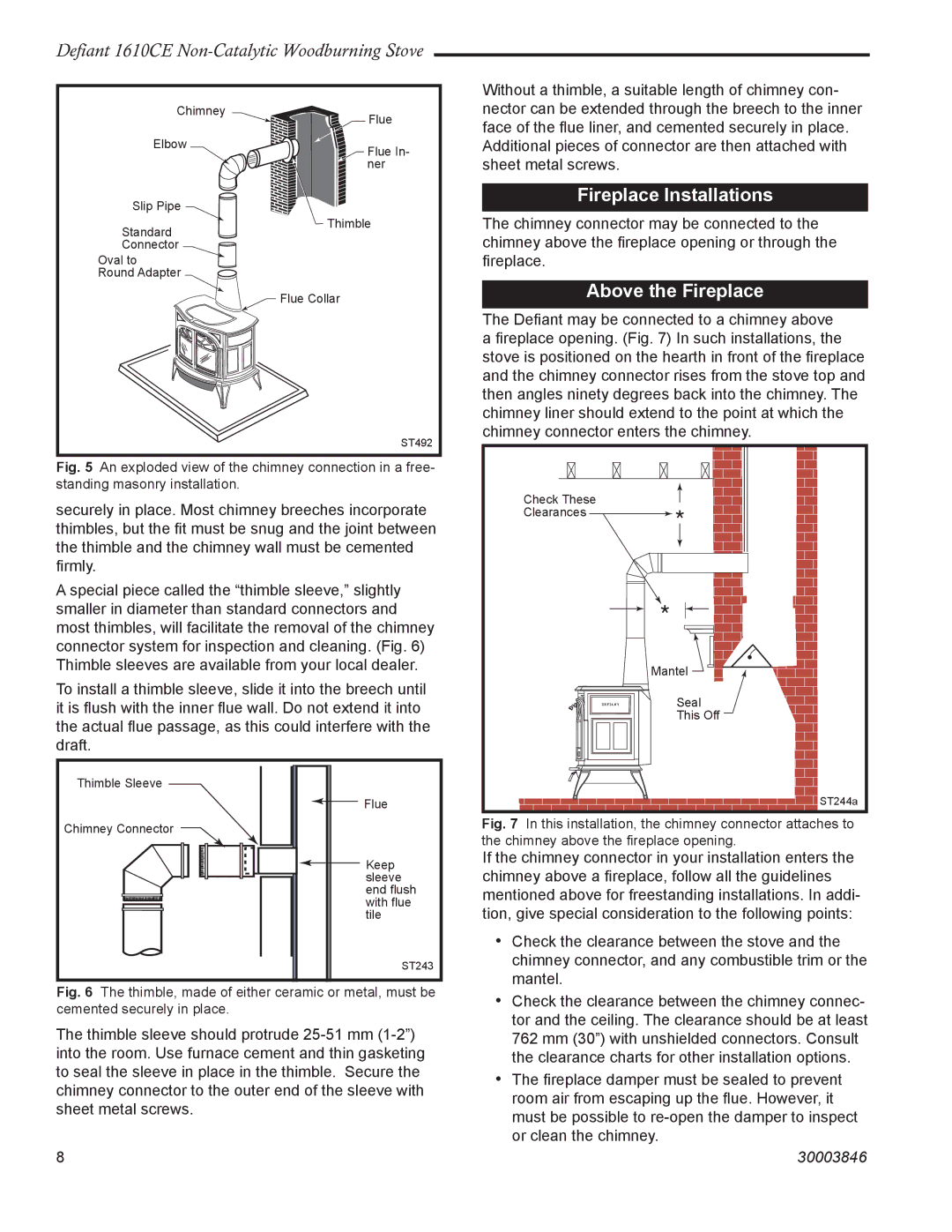1610CE specifications
The Vermont Casting 1610CE is a remarkable addition to the world of wood stoves, known for its combination of efficiency, durability, and classic design. As a proud product of Vermont Castings, this model highlights the brand's dedication to high-quality craftsmanship and innovative technology.One of the standout features of the Vermont Casting 1610CE is its construction. Made from solid cast iron, the stove not only adds an aesthetic appeal with its traditional styling but also ensures longevity and optimal heat retention. The cast iron construction allows for an even distribution of heat throughout the room, creating a comfortable environment during cold weather.
The 1610CE incorporates advanced heating technology with its efficient wood-burning capabilities. This model is designed to meet the strict EPA standards, ensuring lower emissions while maximizing heat output. The stove features a secondary combustion system that effectively burns off excess gases and particulates, leading to cleaner combustion and improved efficiency. As a result, users can enjoy longer burn times and reduced fuel consumption, making this an eco-friendly choice.
Additionally, the Vermont Casting 1610CE boasts a large firebox that can accommodate logs up to 18 inches long. This generous size allows for extended burn cycles, enabling users to enjoy a cozy fire without the need for frequent refueling. The firebox is also equipped with a ceramic glass door, allowing users to view the enchanting flames while providing an efficient seal when closed.
The features continue with an easy-to-use air control system that allows for simple adjustments to the burn rate and heat output. This level of control enables homeowners to maintain their desired temperature with ease. The stove also comes with a built-in ash pan, making cleanup and maintenance hassle-free.
In terms of aesthetics, the Vermont Casting 1610CE is available in a range of finishes, allowing homeowners to choose an option that best complements their home décor. The timeless design ensures it can seamlessly blend into both modern and traditional interiors alike.
In conclusion, the Vermont Casting 1610CE presents a fine balance of traditional craftsmanship and modern technology. With its solid construction, efficient heating capabilities, generous firebox size, and user-friendly features, it stands out as a reliable choice for anyone looking to invest in a high-quality wood stove that combines both form and function.

